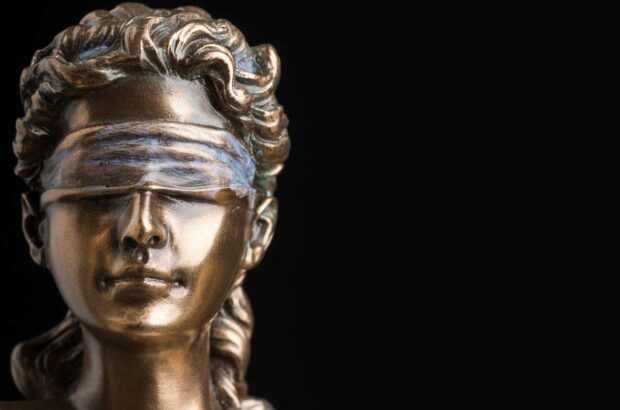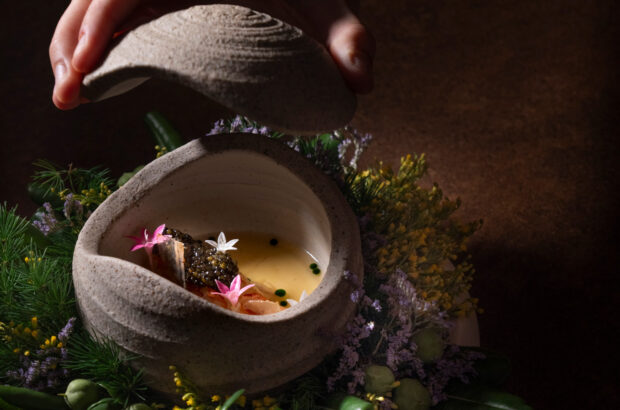Chancellor Rachel Reeves decided to cut the duty on draught alcohol in a bid to provide the UK’s struggling pubs and bars with a vital lifeline.
She said: ‘Nearly two-thirds of alcoholic drinks sold in pubs are served on draught, so instead of uprating these products in line with inflation, I am cutting draught duty by 1.7%, which means a penny off the pint in the pub.’
However, she announced that the alcohol duty rates on ‘non-draught products’ will increase in line with the Retail Price Index (RPI) from February 2025.
The RPI is a measure of inflation published monthly by the Office for National Statistics, and it currently stands at 2.7%.
That means the tax on all wine and spirits sold in the UK is poised to rise by 2.7%, dealing a blow to wine drinkers and the wine industry.
During her Autumn Budget speech, Reeves revealed that UK inflation will average 2.5% in 2024, according to new calculations from the Office for Budget Responsibility (OBR).
The OBR also expects inflation to remain above the government’s 2% target until 2029, so the tax on wine and spirits is due to increase substantially in the years ahead if inflation-linked duty rises remain in place.
Miles Beale, chief executive at the Wine & Spirit Trade Association, called the decision ‘a real kick in the teeth for both businesses and consumers’.
He added: ‘Recent history has shown us that duty increases lead to price rises for consumers, a dip in sales and, as a result, fewer receipts for the Treasury. The near £500m loss in alcohol duty receipts in the last six months couldn’t make that clearer.’
The government also rejected the chance to abolish complex changes to the way in which wine is taxed.
Last year, the Conservative Party announced a convoluted new system, which will impose different tax rates on still wine according to its abv. The wine trade hoped the new Labour government would reverse this decision, but those hopes were dashed today.
Beale said this ‘will mean businesses will now be obliged to tussle with more costly and complicated red tape’, which will increase costs and push up prices for consumers.
He added: ‘It’s bewildering that Labour has chosen to support a Rishi Sunak-inspired tax complication when a long, desperate queue of wine retailers and businesses have beaten a path to the new government’s door to explain why abolishing the easement adds pointless cost and complexity and undermines economic growth.
‘The decisions made at this Budget are a bitter blow for all. They will stifle the growth of British business and add another nail in the coffin for hospitality and result in less choice and price rises for consumers.’
Stephen Russell, founder of Copper Rivet Distillery in Kent and spokesman for the UK Spirits Alliance, added: ‘Pubs are more than pints – a third of all alcoholic drinks sold across hospitality are spirits. Today’s decision won’t stop thousands more pubs and distillers closing down.
‘The last government hiked spirits duty by 10.1% and lost over £300m and counting in Treasury revenues. This decision will increase those losses in future and will cost jobs, reduce investment and damage growth.’
Nuno Teles, managing director at Diageo GB, which produces brands such as Smirnoff, Johnnie Walker and Guinness, said he was ‘deeply disappointed’ by the Budget decisions on alcohol duty.
He said: ‘On the campaign trail, Keir Starmer pledged to “back the Scotch whisky industry to the hilt”. Instead, the government has broken this promise and slammed even more duty on spirits. This betrayal will leave a bitter taste for drinkers and pubs, while jeopardising jobs and investment across Scotland.’
WineGB CEO Nicola Bates said: ‘We are significantly disappointed with today’s Budget, as the alcohol duty rise will not support our industry.
‘The government has missed an opportunity to accelerate growth and help Britain’s domestic wine producers succeed. We anticipate that the over £230m fall in duty receipts for wine as a result of reduced sales seen last year will be repeated.’
On a brighter note, shops and pubs in England were given a reprieve after Reeves extended a relief scheme on business rates introduced during the pandemic.
However, taxes will increase by £40bn in total. Reeves accused the previous Conservative government of failing Britain before announcing the various tax hikes.
‘Their austerity broke the National Health Service, their Brexit deal harmed British businesses, and their mini-budget left families paying the price with higher mortgages,’ she said.
She added that Labour inherited ‘broken’ public finances and creaking public services, which necessitated a rise in taxes. ‘Economic stability must be restored,’ she said. ‘Any responsible chancellor would take action.’






